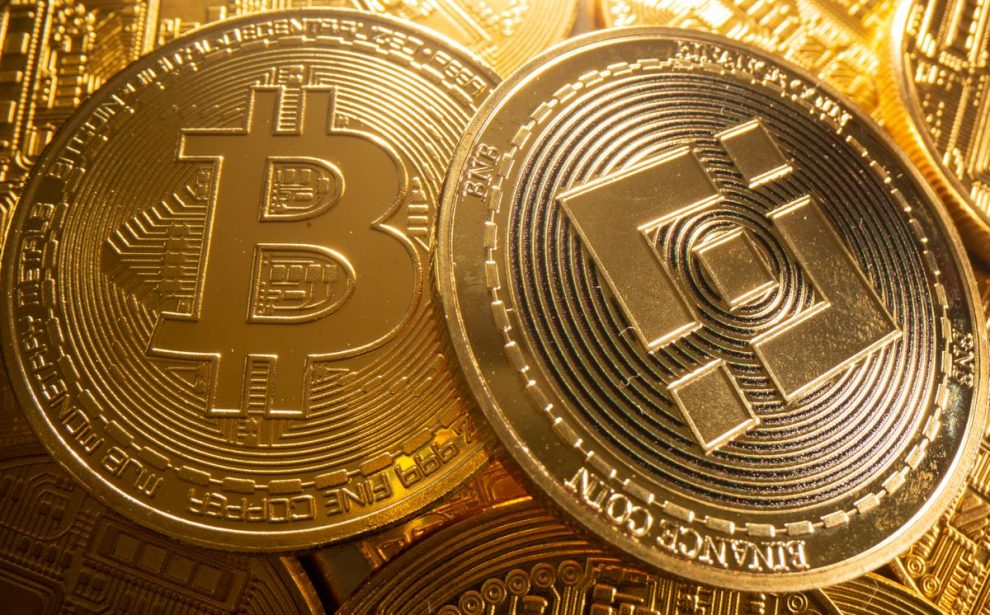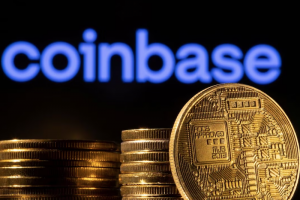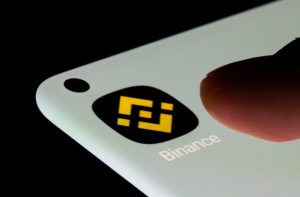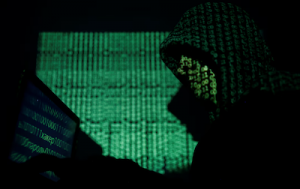With Russia facing a barrage of sanctions following its invasion of Ukraine, some believe President Vladimir Putin and his oligarchs will turn to cryptocurrencies to evade them.
On Monday, the US’s Financial Crimes Enforcement Network warned financial institutions to be vigilant in watching out for potential Russian sanctions evasion attempts, laying out examples of red flags that would help them identify sanctions evasion activity. It said Russian and Belarusian entities may seek to evade sanctions, including by using convertible virtual currencies.
Governments enforce sanctions by tracking transactions in the banking system. Will Russia be able to use cryptocurrencies to circumvent the traditional banking system to avoid the sanctions?
The simple answer is ‘no,’ and here are five reasons why:
Liquidity
Crypto markets are too small. Payments of the size necessary to run an economy would be impractical for cryptocurrency. Russia is integrated into the global financial system, with some 80% of its daily foreign exchange transactions and half of its international trade conducted in US dollars. The crypto market is just not big enough to handle it.
“The sanctions amount to over a trillion US dollars,” says Jorge Pesok, Chief Compliance Officer and General Counsel with crypto compliance specialist firm Tacen. “The crypto markets simply cannot handle that kind of volume.”
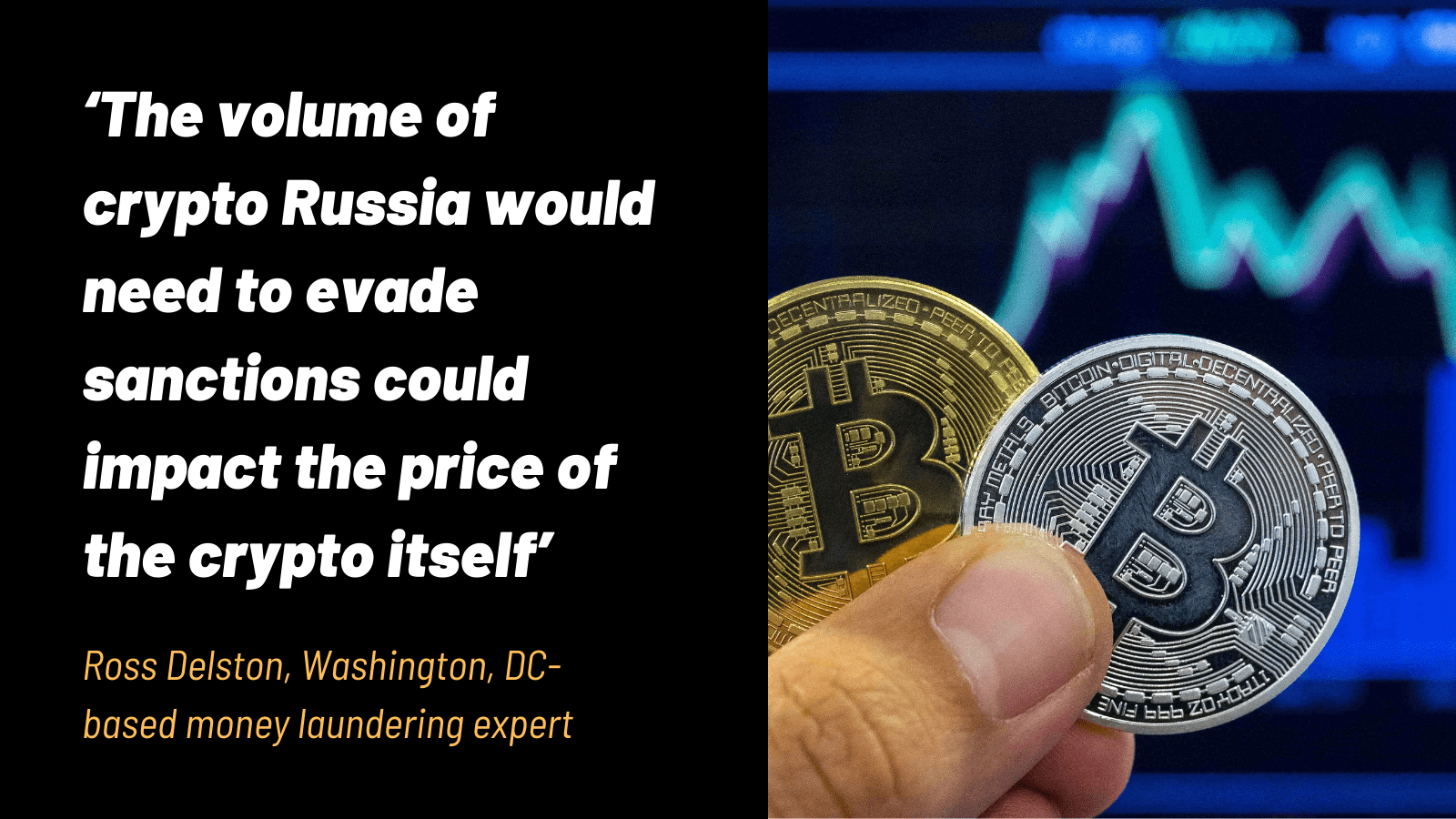
Russia’s total exports in 2019 were worth $407 billion, while imports totalled $238 billion for $645 billion in total trade, according to data analytics firm Observatory of Economic Complexity. Investopedia estimates the combined market value of all the bitcoin in the world at just over $1 trillion, indicating Russia’s trade would equal almost 65% of that.
“Crypto is not there yet,” says Roman Bieda, Coinfirm’s Head of Fraud Investigations. “The size of the Russian economy is just too great.”
And Ross Delston, a Washington, DC-based attorney and money laundering expert, added: “The volume of crypto they would need could impact the price of the crypto itself.’’
Blockchain’s Ledger
Crypto’s underworld reputation may not be deserved. That’s because every transaction is recorded on blockchain, the underlying technology used by cryptocurrencies such as Bitcoin. It ensures a secure record on a ledger that anyone can see. This technology makes it easier to track transactions on the blockchain than through a traditional banking system.
“The crypto space is very tech-forward,” says Sarah Beth Felix, an anti-money laundering expert with Palmera Consulting. “You will not find a piece of paper anywhere. When you’re talking about banks, even the big ones, there is still a lot of paper involved. That means a lot more work to track transactions.”
Every time crypto moves from one digital wallet to another, it leaves a permanent record on the ledger. The ledger entry is only a number so it does not tell regulators who owns the asset, but they can monitor from where it came and went, watch it move, seize it and then try to establish its ownership. With a warrant, regulators could also look inside the digital wallet to seek additional clues.
Even if a crypto exchange does not comply with sanctions, its record is still public on the blockchain, says Delston.
Easy to track
Blockchain’s anonymity disguises ownership, but that doesn’t mean crypto assets are untouchable. Because the ledger is public and everything is digital, large transactions are easy to spot and track.
“Once you start to move the money, it alerts the authorities,” says Pesok. “You may not be able to identify who owns it, but you can definitely stop them from getting at it.”
The US Treasury Department’s Office of Foreign Assets Control (OFAC) actively monitors crypto activity to look for suspicious transactions, identify suspect wallets and put them on a watchlist. It also has a sanctions list. OFAC can move to seize a specific crypto wallet and all the crypto money in it, or wait until somebody tries to use the money and then seize it and investigate.
“The problem is when you want to get the money out of crypto,” says Pawel Aleksander, Co-Founder and CIO of compliance firm Coinfirm. “OFAC has a list of wallet numbers, so if you see a transaction coming from one of those wallets, the authorities can notify the crypto exchange to seize it.”
The recent arrest of a couple in New York is a good example. In 2016, hackers stole almost 120,000 bitcoin from the Bitfinex platform through more than 2,000 unauthorised transactions, sending the stolen bitcoin to a single digital wallet. Over five years, approximately 25,000 of the stolen bitcoin were transferred out of the wallet via a complicated laundering process that deposited some into accounts controlled by the arrested couple.
The Department of Justice obtained a search warrant and was able to access files with the keys to open the digital wallet, which provided the evidence to connect the couple to the stolen crypto. Despite laundering the money through what the Department of Justice described as a “labyrinth of cryptocurrency transactions,” more than 94,000 of the stolen bitcoin worth some US$3.6 billion were recovered.
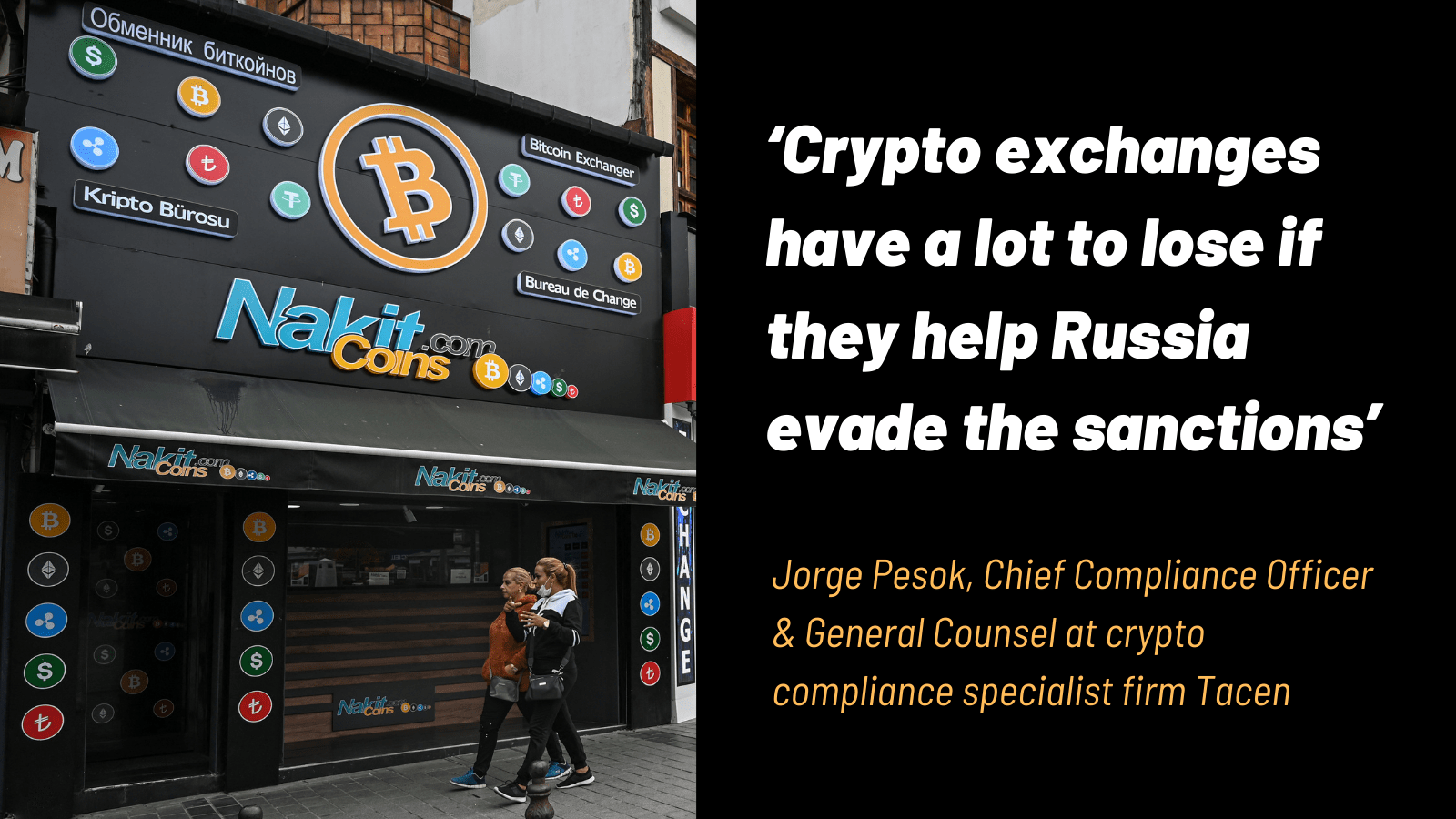
Not a Medium of Exchange
Crypto has crept into the mainstream. More businesses accept it, including Starbucks, which lets customers pay with Bitcoin using the store’s app. But as a medium of exchange cryptocurrencies remain very limited.
Another look at Russia’s exports and imports shows why crypto will not make a good alternative to old-fashioned fiat currencies. OEC data shows Russia’s top imports are manufactured goods such as cars, packaged medicines and vehicle parts from major trading partners including Germany, the US and Italy.
“Those would be substantial payments, and most legitimate sellers would not accept payment in crypto,” notes Delston. “Plus, most of the products come from countries that have signed on to the sanctions.”
Enforcement
Enforcement efforts are being ramped up. The US Department of Justice created a National Cryptocurrency Enforcement Team and in February appointed its first director. In his State of the Union address, US president Biden announced Task Force KleptoCapture to go after the wealth of Russian oligarchs – and specifically called out crypto in his remarks.
Four US senators even sent a public letter to US Treasury Secretary Janet Yellen asking her to explain how her department will stop attempts to use crypto to evade sanctions.
“The focus shines a light on the issue and will make it a lot harder to get away with anything,” says Pesok. “There’s a lot of incentive now to track and identify illegal activity, even an incentive for the exchanges to help out as that may help them shed their ‘bogey man’ reputation.”
While crypto exchanges say they will not impose a blanket ban on transactions in Russia, the biggest exchange by trading volume, Binance, says it will block accounts of any individual targeted by sanctions.
In any case, the Treasury Department’s OFAC has a long reach and has previously pursued crypto exchanges that help evade sanctions. In November 2021, it targeted crypto exchange Chatex, based in Latvia, for “providing material support” to a sanctioned entity by allowing it to conduct transactions through its exchange.
Chatex says it had to suspend withdrawals for all its 370,000 registered users. To release seized funds, account holders were required to file a form with OFAC showing the transactions are legitimate and to provide supporting documentation.
Pesok notes that the majority of crypto trades go through a relatively small number of major exchanges, and those exchanges will have the most to gain reputation-wise by publicly cooperating.
“They have a lot to lose if they help evade the sanctions,’’ he says.
- By Neal McGrath
ALSO ON AF: Global Regulators Fast-Track Cryptoassets Framework




